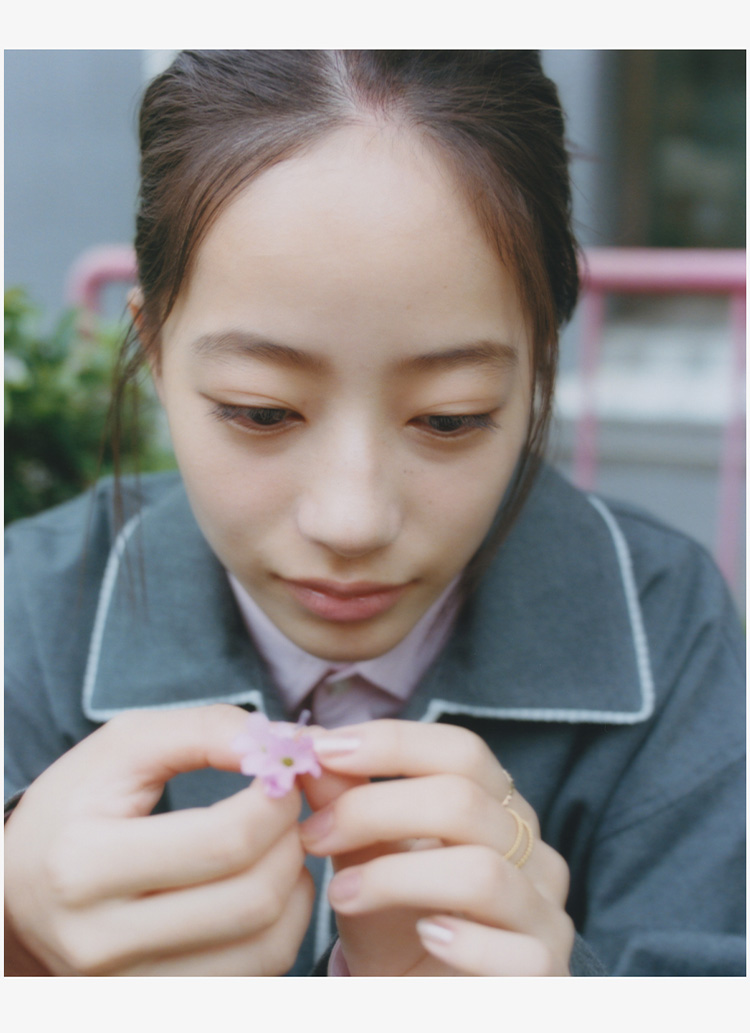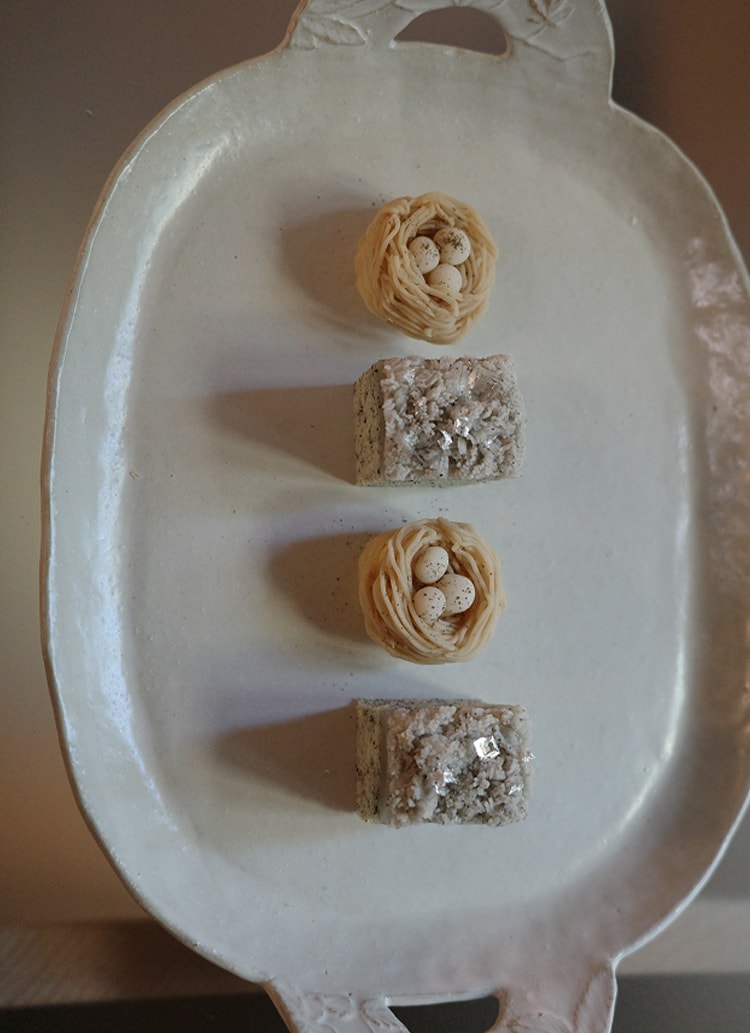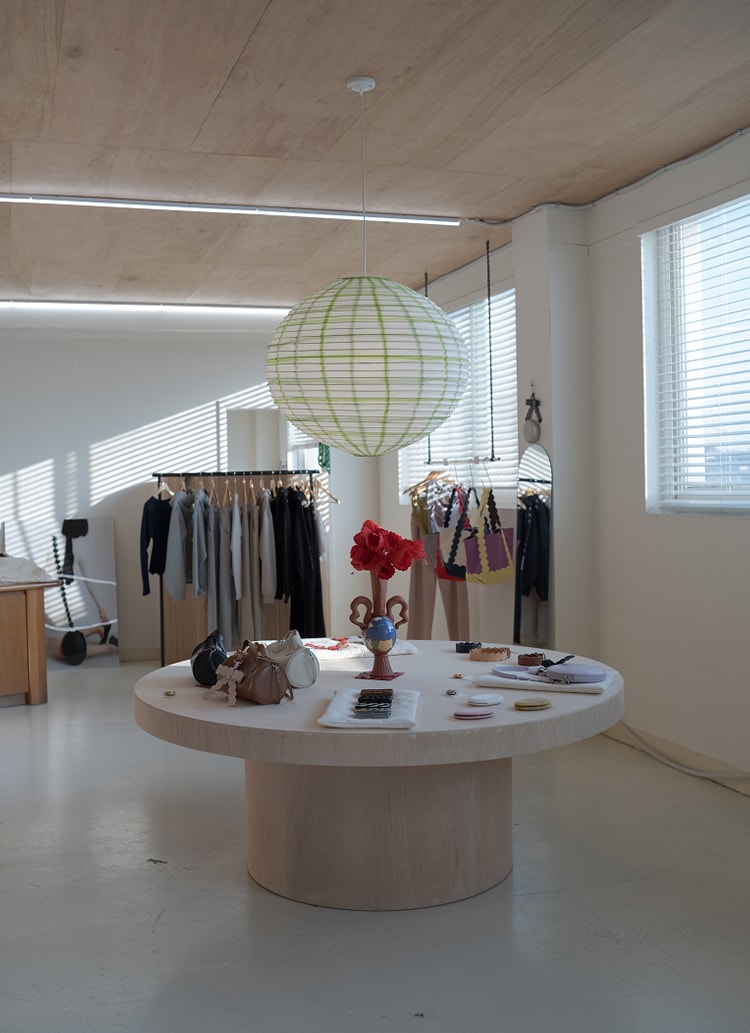New ideas generated by contradictory words and questions to others.
I think it is common for both of you to realize the images you have in your head.

Valley bottom:I get a lot from words. I especially like contradictory words.
Matayoshi:For example, what is it?
Valley bottom:Like "a nostalgic future." We are used to hearing these words "nostalgic" and "future," but don't you get a hunch when you put them into one sentence? That's how I try to replace what I express in words with designs and materials.
Matayoshi:So it's not just novelty, nor is it just nostalgia.
Valley bottom:If something is too new, people can't appreciate it. But when you add an element that we know something about, it becomes instantly easier to define.
Matayoshi:I think I know what you mean.
Valley bottom:The "company cafeteria" is our company's office, but it is also a cafeteria that is open to the public. It is what we call a "modern version of a private home. If you put out a table, it becomes a dining room, if you put down a futon, it becomes a bedroom, and if someone dies, it becomes a funeral hall. I created this house because I thought that this way of using space like an old minka (private house) was actually new.
Matayoshi:I see. I really like the concept of being able to change the use of space from time to time.

Valley bottom:Also, I don't think that the name controls everything. If you happen to find a flat board about 70 cm off the ground and name it "desk," it can only be used as a desk.
Matayoshi:In other words, I have always wanted to open a bookstore. But I don't want it to be just a bookstore.
Valley bottom:What do you have in mind?

Matayoshi:First of all, it is located facing the street, and the interior is a long, narrow space. Books are lined up on the entrance side, and there is a bar counter in the back. The bookshelves are movable and can be moved to create a live space.
Valley bottom:Isn't that interesting?
Matayoshi:If I wanted to, I would also like to have a camper adjacent to it so that I could pack up my books and launch them into town. I keep thinking about that, even though no one has asked me to do so.
Do you have a strong desire to make it happen?
Matayoshi:Running a bookstore is my dream. I often write contraptions and short stories in which I am the bookstore clerk, so I guess I really want to do it (laughs).
Valley bottom:I'd like to take a look at it, though.
Matayoshi:It would be great if we could make it happen.
I'm going back to what you said earlier about "thinking from words".
Valley bottom:In the case of architecture, we have a client, so we start with an interview. If it is a house, I ask how many rooms are needed, whether the living room should be spacious, and what the children's rooms will be like. I also make sure to visit the client's home.
Matayoshi:Why?
Valley bottom:Even when we have meetings in the office, everyone is cool (laughs).

Matayoshi:I think I know what you mean (laughs).
Valley bottom:So I try not to say anything strange. But what I want to know is the client's values. Do they like cooking or music? When I can see that kind of personality, words come to mind.
How about the source of your idea, Mr. Matayoshi?
Matayoshi:I keep thinking about it. However, what I can think of on my own is limited to the scope of my knowledge, so I try to expand it. For example, when I am having a drink with a senior comedian, I ask him, "What do you do in a situation like this? I would ask questions like, "What do you do in these situations? That way, I can hear from many different angles.
Did you gather ideas for "Human" in that way?
Matayoshi:This novel is a compilation of a 9-month Series I wrote for "Mainichi Shinbun" (Mainichi Newspaper), and I had to send the manuscript by 5:00 p.m. or I would be left with a blank space. I had to send the manuscript by 5:00 p.m. or else I would have a blank space.
Valley bottom:That was tough!
Matayoshi:Normally, it seems that the writers submit their work in order after having accumulated a certain amount of writing, but I thought that if they did that, they would want to make things add up in the middle of the story. It would be like trying to write a sequel today to what you wrote yesterday, and then going back and rewriting yesterday's work because it would be difficult to write this development. So I dared to make a last-minute progress and pry my way through it, taking responsibility for yesterday's self. Then I got into a kind of strange rhythm.
Valley bottom:It's like a one-man jazz session.


Matayoshi:Yes, it was like that. When I made the book, I corrected some of the details, but I tried to keep that strange rhythm as much as possible. In a way, I couldn't have written it with just my own abilities.
Valley bottom:I call this "borrowing brains" in the sense of borrowing someone else's brain.
Matayoshi:I like the borrowed brain. When I am consulting with my friends, I sometimes say things that I never thought I would say. I get a "thank you" from them, but the truth is that I am the most surprised (laughs).
Valley bottom:There is such a thing, isn't there?
Matayoshi:But I also think that it is a collaborative process. I think that the situation the other person is in, the words they want to hear, and the thoughts in one's own brain come together to transcend one's own ideas. It is the same with creation. Otherwise, we would be repeating ourselves.



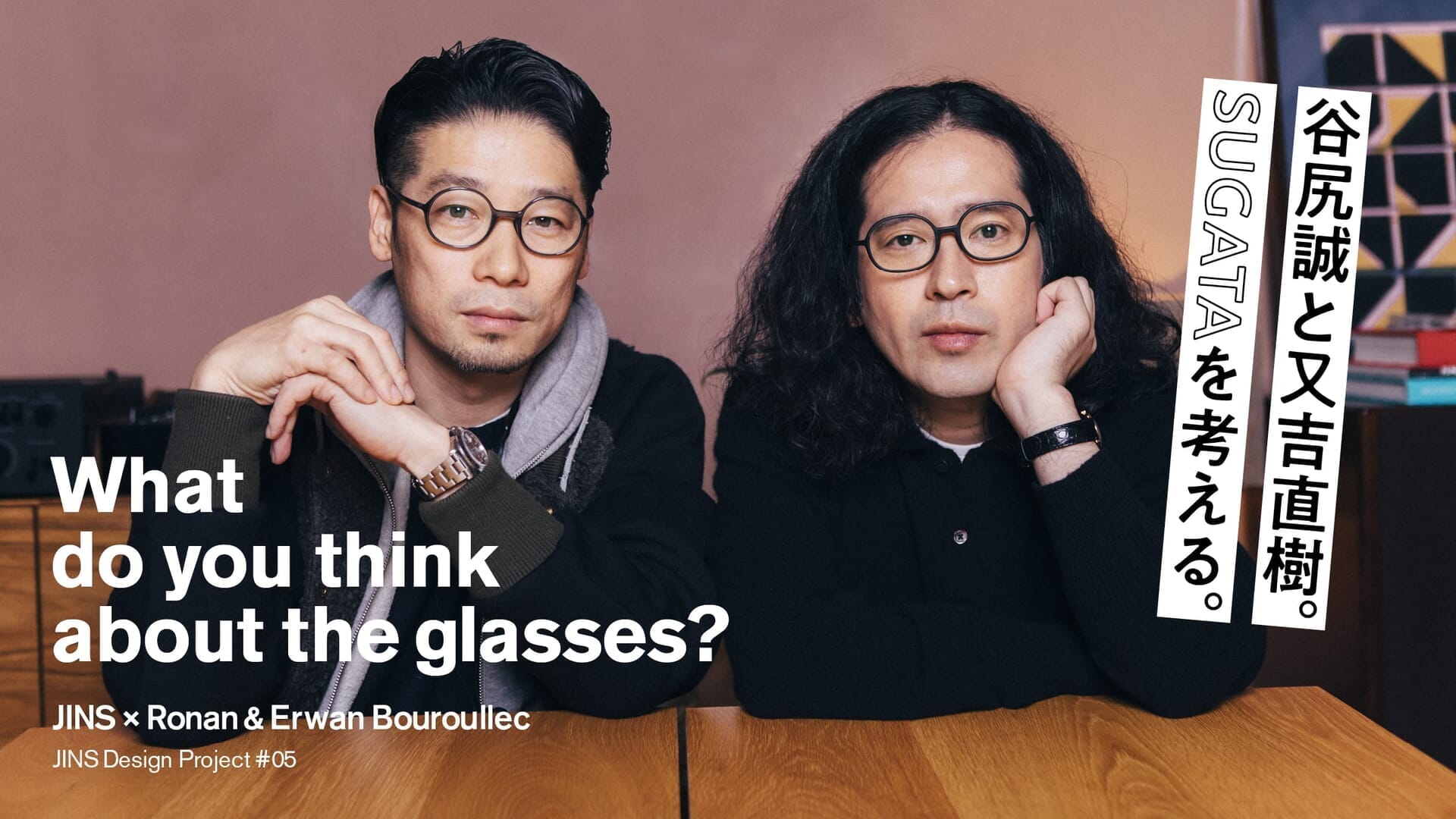


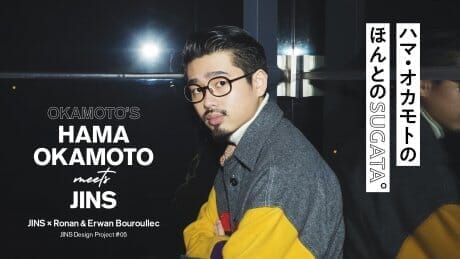
![AH.H] Clothes and people that interest me. Vol.14 JINS×Ronan&Erwan Bouroullec](https://www.houyhnhnm.jp/wp-content/uploads/2019/12/ah_pickup14_main-1-460x259.jpg)



